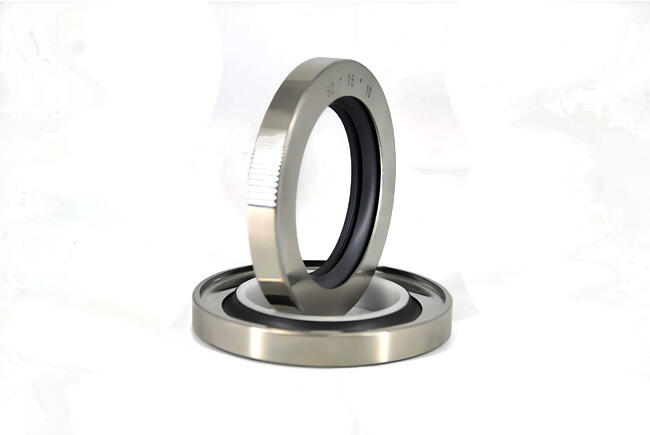In the sealing industry, the choice of material and structure defines the reliability of oil seals. Stainless steel PTFE oil seals have gained attention in recent years, combining the strength of stainless steel with the chemical resistance of PTFE. They are increasingly used in demanding environments where conventional seals fail quickly. Let’s explore their applications, material features, installation notes, and market relevance.
Applications
Stainless steel PTFE oil seals are widely used in chemical pumps, pharmaceutical machinery, food processing equipment, and high-temperature engineering systems. Their advantages include:
Resistance to aggressive media such as acids and alkalis;
Stability under high temperatures;
Reduced leakage risk in high-speed or high-pressure conditions.
For example, a chemical plant transporting corrosive liquids found that standard rubber seals required replacement every few months. After switching to stainless steel PTFE seals, service life extended beyond a year, lowering maintenance costs.
Material Features
Stainless steel frame: Provides mechanical strength and prevents deformation under pressure.
PTFE sealing lip: Low friction, excellent chemical resistance, suitable for complex media.
Composite design: Some products include springs or coatings to enhance sealing performance.
This combination ensures durability against both mechanical stress and chemical attack.
Installation and Maintenance
Performance depends not only on material but also on installation quality:
Inspect shaft surfaces for smoothness to avoid damaging the sealing lip.
Use lubricants compatible with PTFE to prevent reactions.
Ensure proper compression—too tight accelerates wear, too loose causes leakage.
In high-temperature conditions, check spring tension and lip wear regularly.
Distributors who highlight these details during after-sales service often gain stronger customer loyalty.

Distributor-Oriented Q&A
Q: Why are stainless steel PTFE seals more expensive than standard seals? A: The cost reflects advanced materials and processes. Longer service life reduces overall expenses.
Q: Can rubber seals replace them? A: In mild conditions, yes, but in corrosive or high-temperature environments, risks are significant.
Q: How can batch consistency be ensured? A: Work with suppliers offering traceability and establish incoming inspection procedures.
As industrial equipment moves toward higher performance and sustainability, demand for stainless steel PTFE seals is rising. Eco-friendly materials, extended service life, and reliable supply chains are becoming priorities. Distributors who anticipate these needs will secure a competitive edge.
Stainless steel PTFE oil seals may be small, but they are vital for equipment reliability. Distributors and wholesalers who provide expertise in selection, materials, installation, and supply chain management will build trust and long-term partnerships.
 Hot News
Hot News